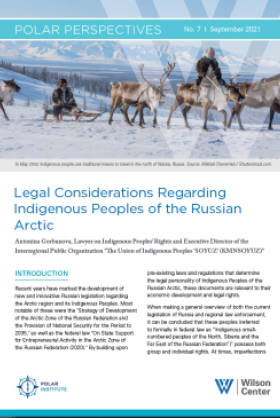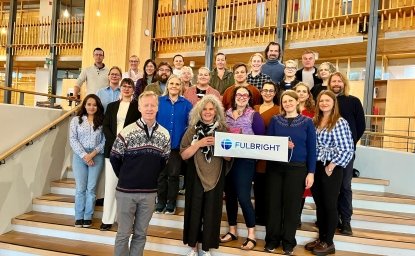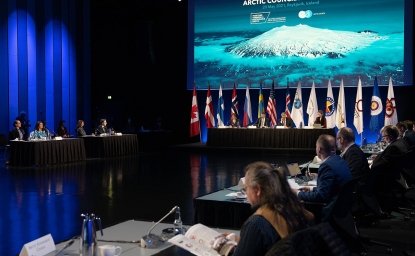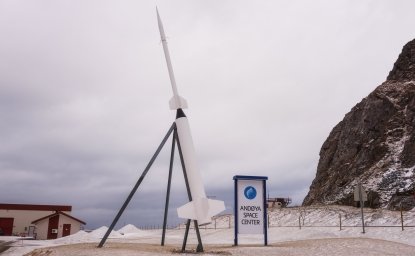Polar Perspectives No. 7 | Legal Considerations Regarding Indigenous Peoples of the Russian Arctic


Of the 190 ethnic groups living in Russia, small-numbered Indigenous Peoples maintain a special legal status. Small-numbered Indigenous Peoples of the North, Siberia, and the Far East lead unique, distinct ways of life and livelihoods based on traditional economic activities such as crafts, reindeer husbandry, fishing, hunting, gathering, and harvesting marine mammals, among other traditions. Sectoral legislation on hunting, fishing, protected natural areas, land legislation, tax and pension legislation provide several special rights and preferences for Indigenous Peoples. Moreover, recent years have marked the development of new and innovative Russian legislation regarding the Arctic region and the Indigenous Peoples who live in the Arctic zone. Antonina Gorbunova, a human rights lawyer, describes legislation, tools, and mechanisms that directly impact the livelihoods of the Indigenous Peoples of the Russian Arctic in Polar Perspectives No. 7 | Legal Considerations Regarding Indigenous Peoples of the Russian Arctic.
Author

Contributor

Author of Welp: Climate Change & Arctic Identities; Climate Justice Director, Native Movement

Polar Institute
Since its inception in 2017, the Polar Institute has become a premier forum for discussion and policy analysis of Arctic and Antarctic issues, and is known in Washington, DC and elsewhere as the Arctic Public Square. The Institute holistically studies the central policy issues facing these regions—with an emphasis on Arctic governance, climate change, economic development, scientific research, security, and Indigenous communities—and communicates trusted analysis to policymakers and other stakeholders. Read more

Explore More
Browse Insights & Analysis
Fulbright Arctic Initiative IV Scholar at the Polar Institute

Trump 2.0’s Arctic Opportunity: Thawing Frozen Dialogue

